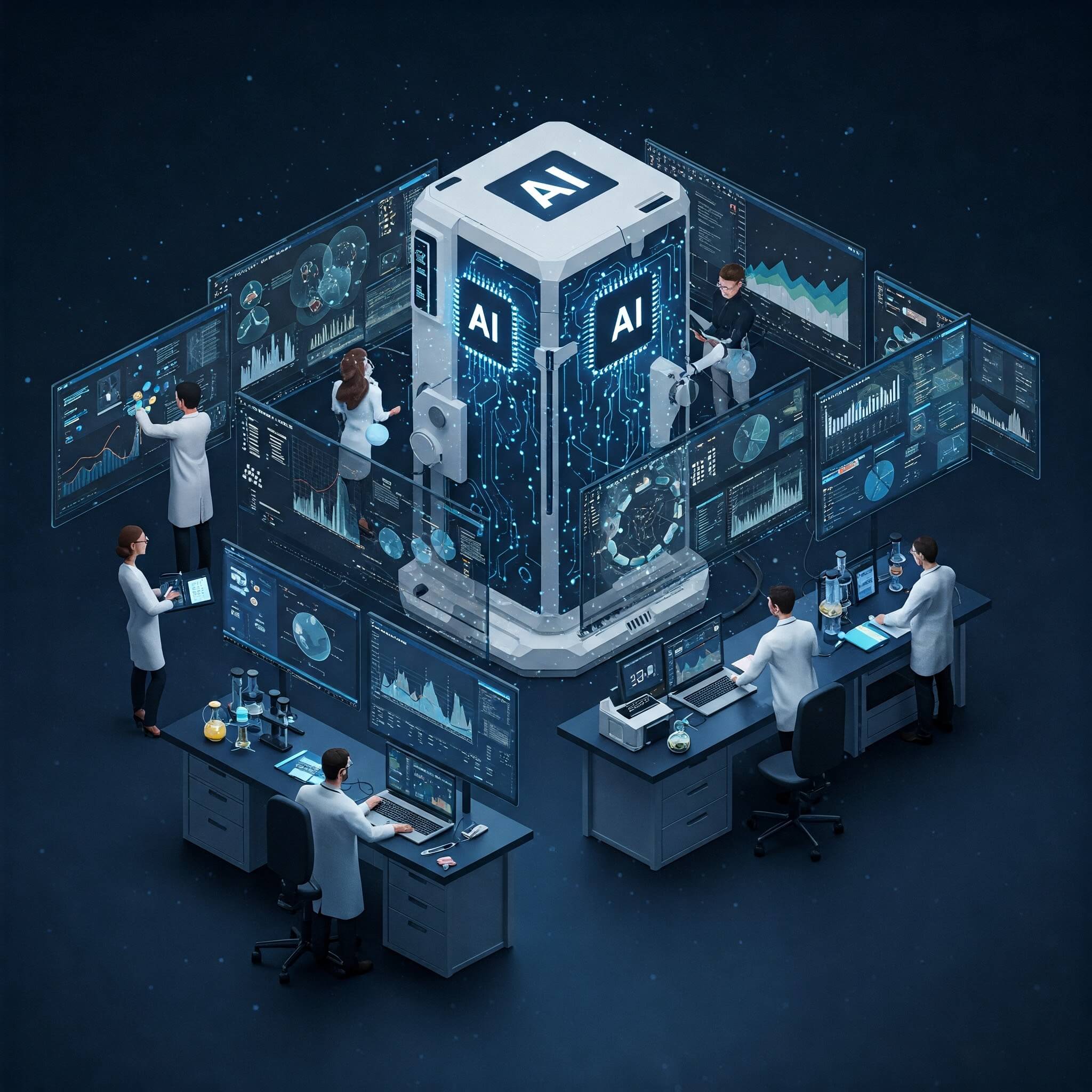Artificial intelligence is no longer a futuristic concept; it's a present-day reality revolutionizing how scientific discoveries are made. AI's capabilities to analyze vast datasets, generate hypotheses, and automate experiments are accelerating the pace of research across various disciplines, impacting everything from drug discovery to climate modeling. This technological shift is not just about making existing processes faster; it's about enabling breakthroughs that were once considered impossible.
One of the most significant ways AI is transforming scientific discovery is through its ability to identify meaningful trends in large datasets. In fields like genomics, AI can detect genetic mutations that may lead to diseases, helping scientists develop personalized treatments. In climate science, AI can sift through decades of climate data to identify trends and predict future changes with remarkable accuracy. Humans often overlook subtle but significant patterns, but AI algorithms excel at spotting these hidden connections. This capacity is particularly valuable in fields generating massive datasets, such as particle physics, astronomy, and materials science.
AI algorithms can also predict outcomes based on data, providing valuable insights into the likelihood of success for various hypotheses. Researchers are using AI to generate synthetic storms and identify new precursors to tornadoes. Tornadoes are rare enough that real ones alone don't generate enough data to inform that effort. AI is accelerating research on complex neurodegenerative diseases like Alzheimer's and Parkinson's. AI's predictive capabilities extend beyond weather and medicine. They are used in various fields, including predicting the properties of new materials, forecasting economic trends, and modeling the spread of infectious diseases.
Furthermore, AI is enhancing the speed, accuracy, and depth of simulations, allowing researchers to explore scenarios that would be impossible or too expensive to test in the real world. AI is revolutionizing drug discovery by simulating the interactions between molecules to predict which compounds are most likely to be effective in treating specific diseases. AI algorithms can process vast chemical databases in seconds, predicting potential drug candidates and their effectiveness. Generative AI is also used to design new crop varieties with specific traits, generate models of potential future farming landscapes under different climate scenarios, and create simulations of complex ecosystems to study environmental impacts.
AI tools are not limited to analyzing data and running simulations; they are also capable of generating novel hypotheses. By identifying correlations and suggesting novel approaches, AI enables scientists to explore avenues they may not have considered, resulting in unexpected breakthroughs. AI is a very good generalist – “probably already better than a lot of scientists' comprehension of other disciplines”. Generative AI can create molecules with the desired properties that do not exist in the known chemical space. “So something that is precisely tailored for specific protein targets driving major diseases, that does not exist in nature, can be created by AI.
Recent developments have led to the creation of AI co-scientists, multi-agent AI systems designed to function as virtual scientific collaborators. These systems, built on advanced models like Gemini 2.0, can generate novel research hypotheses, detailed research overviews, and experimental protocols. Inspired by the scientific method, these AI co-scientists use specialized agents for generation, reflection, ranking, evolution, proximity analysis, and meta-review. The agents use automated feedback to iteratively generate, evaluate, and refine hypotheses, resulting in a self-improving cycle of increasingly high-quality and novel outputs.
The rise of AI in scientific discovery also brings ethical considerations. As AI systems become more capable, they will increasingly play roles in scientific discovery. They are already amplifying the process, accelerating literature reviews, speeding up code development, and generating experiment designs in minutes instead of months. It is important to address science-specific AI challenges such as preserving scientific integrity and methodological rigour.
Despite these challenges, the potential of AI to revolutionize scientific discovery is immense. By augmenting human capabilities, AI is accelerating the pace of research and enabling breakthroughs that were once considered impossible. As AI technology continues to evolve, it promises to unlock new frontiers of knowledge and help us solve some of humanity's most pressing problems. The AI revolution in scientific discovery is not just a technological trend; it's a fundamental shift in how we approach and understand the world around us.

















